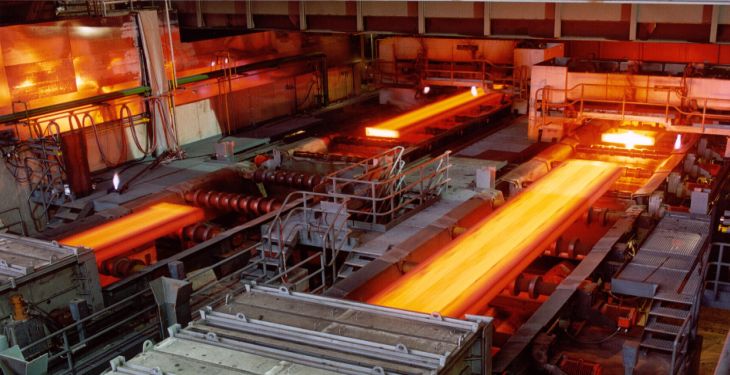By authorising the steel industry to burn blast furnace gases until 2026, the European Commission has backtracked on its earlier position. EURACTIV France reports.
In its last proposal on the allocation of CO2 allowances for industry after 2020, the European executive has proposed granting free allowances to blast furnaces which burn gases generated by the combustion of coal and coke.
As the document stated (page 24), emissions from flaring will have to be reduced as of 2026 when steel factories will have to produce carbon allowances to continue the practice.
This is a decision that goes against the Paris Agreement and is the result of fierce lobbying by the steel sector with EU member states and the European Commission.
“It was initially a technical subject, it has become very political. Germany and Belgium mobilised and it was Juncker’s cabinet that ultimately decided in favour of industry,” said a source close to the discussions.
Having been adopted a year ago, not without difficulties, the reform of the European carbon market has borne fruit in terms of price rises. Having been at €7 a tonne a year ago, CO2 is now processed at €16 because the prospect of a significant reduction in the number of allowances in circulation has encouraged industry to buy them, which has in turn pushed up the prices.
The directive now has to be interpreted by delegated acts, which are drawn up by the European Commission and then submitted to the European Parliament and the European Council for approval.
The document organising how allowances are allocated does not contain any major surprises for the other sectors and the 11,000 industrial sites concerned, which might encourage the European Parliament to approve it. If it is voted against, all of the negotiating work would have to be started over.
A step backwards that will not help the climate
Originally, the Commission wanted to interrupt the allocation of free allowances for CO2 emissions from gas “flaring” in blast furnaces from 2021.
Indeed, the practice of flaring, which has already been forbidden or is strictly regulated in most European industries – such as in refineries or oil extraction – is very harmful. Mixing carbon with coke and iron ore burnt at a high temperature produces twice the amount of CO2 as coal on its own. Moreover, the emitted particles heavily contribute to air pollution.
Most European blast furnaces have already established solutions which mean that flaring can be avoided by recycling the gas in heat circuits or by generating electricity.
“By giving free allowances to highly polluting gas emitters, we are not helping the climate! It’s both ineffective and bad for air quality,” objected Femke de Jong, policy director at Carbon Market Watch.
A €120 million gift per year to industry
The volume of energy that could have been saved by banning flaring in the sector represents the electricity consumed by one million people in a year. The total amount is approximately 6 million allowances, or €120 million a year.
This money will land in the pockets of steel producers rather than those of the state. Initially, the Commission wanted to auction those allowances, with the proceeds of these sales then, theoretically, being assigned to the energy transition.
ArcelorMittal in control?
Out of around 30 active blast furnaces in Europe, only two or three in Eastern Europe do not have an installation which can avoid flaring. However, the others occasionally also need to burn the gases. This is regularly the case in France at ArcelorMittal’s installations in Fos-sur-Mer and Dunkirk.
But allocating these allowances to the most polluting installations automatically increases the total number of allowances given to the steel industry, which relies heavily on allowances handed out for free. This means the sector will benefit from a comfortable number of carbon quotas until 2026.
“The real question is why the European Commission is bowing to this sector’s will, which was already the case during the 2014-2020 period. The decision was taken at Juncker’s cabinet and ArcelorMittal has its headquarters in Luxembourg. This raises questions,” said de Jong.
ArcelorMittal has considerable experience in optimally managing its carbon allowances. It has sold almost $500 million of allowances since the carbon market was created in 2005.
